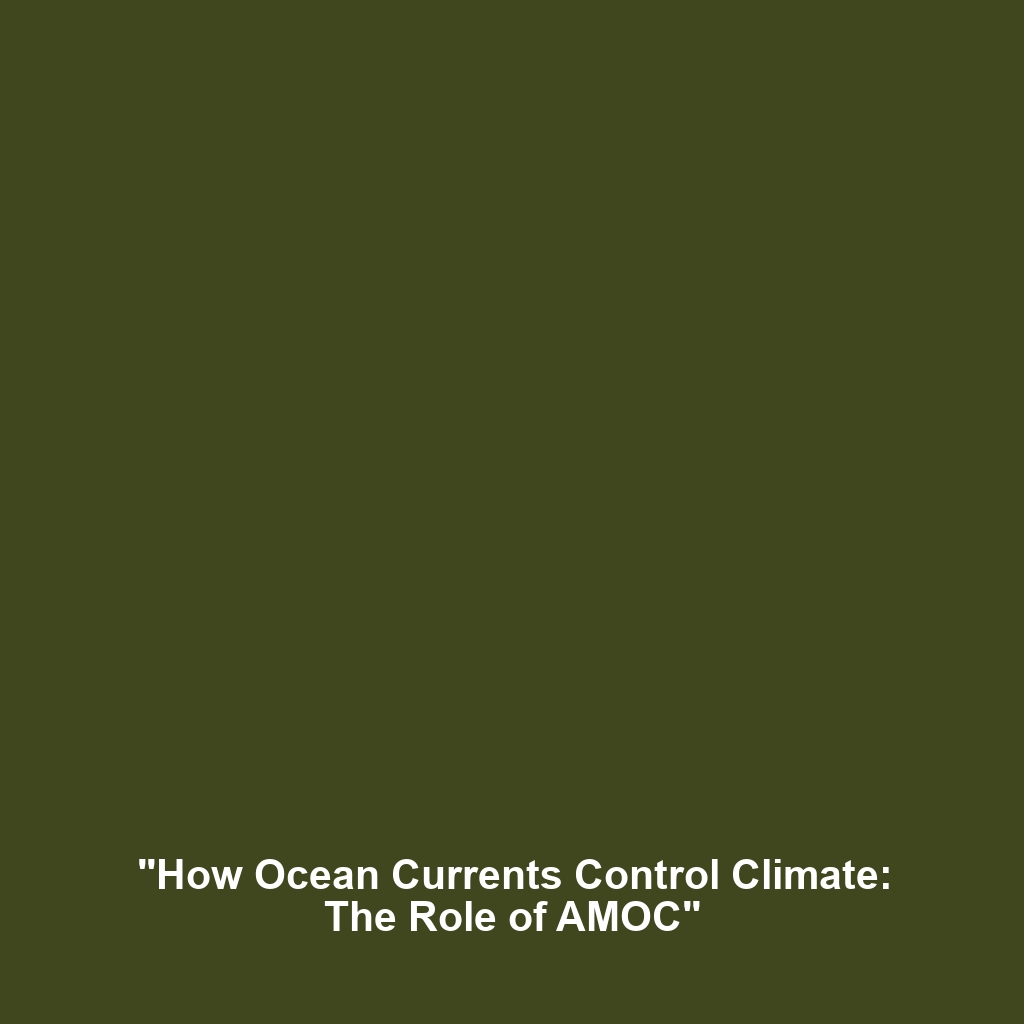The Role of Ocean Currents in Regulating Climate
Introduction
The interplay between ocean currents and climate has profound implications for understanding climate history. One of the most crucial factors in this dynamic is the Atlantic Meridional Overturning Circulation (AMOC), a system of ocean currents that transports heat across the globe. By redistributing warm water from the tropics to the North Atlantic, the AMOC plays a pivotal role in regulating climate patterns, influencing weather systems, and even affecting sea levels. Understanding ocean currents is essential in grasping how they shape historical climate changes, making this topic central to climate science and history.
Key Concepts
The Atlantic Meridional Overturning Circulation (AMOC)
The AMOC is characterized by a northward flow of warm surface water and a return flow of cold water at greater depths. This circulation is vital for maintaining the Earth’s energy balance and influences climatic events across the globe. The regulation of temperature due to this current has historically led to significant changes in climate, particularly in the Northern Hemisphere.
Ocean Currents and Heat Distribution
Ocean currents, including the AMOC, serve as integral components of the global climate system, facilitating heat distribution. This process impacts regional climates, weather phenomena, and even the behavior of ecosystems, illustrating the interconnected nature of climate systems throughout history.
Applications and Real-World Uses
The role of ocean currents, especially the AMOC, has practical applications in various fields:
- Climate Modeling: Scientists utilize models incorporating ocean currents to predict weather patterns and climate changes.
- Resource Management: Fisheries management strategies are informed by understanding how currents affect marine biodiversity.
- Disaster Preparedness: Improved predictions of climate impacts help communities prepare for extreme weather events.
These examples underline how the understanding of ocean currents is crucial in the field of climate history and its relevance to modern society.
Current Challenges
Despite advances in research, several challenges persist regarding the study of ocean currents:
- Data gaps in historical records hinder precise modeling of past climates.
- Climate variability complicates predictions related to the AMOC and its future stability.
- Funding limitations restrict extensive oceanographic studies necessary for deeper insights.
These issues highlight the ongoing struggles faced in understanding and utilizing ocean currents effectively in the broader context of climate history.
Future Research and Innovations
Looking ahead, several areas of innovative research aim to enhance our knowledge regarding the AMOC’s role in climate regulation:
- Advanced Climate Modeling: Development of high-resolution models that incorporate real-time oceanic data.
- Technological Breakthroughs: Use of autonomous underwater vehicles for enhanced data collection in deep ocean currents.
- Interdisciplinary Studies: Collaborations between climatologists, oceanographers, and environmental scientists to form holistic climate models.
Such advancements will be vital for future predictions and responses to climate change.
Conclusion
The role of ocean currents, notably the Atlantic Meridional Overturning Circulation, is fundamental to understanding climate regulation and its historical context. As we face increasingly unpredictable climate challenges, ongoing research and innovative applications of ocean current data will be essential for effective climate action.
For further reading on related topics, explore our articles on climate modeling and marine ecosystems. Your engagement in understanding these concepts is critical as we navigate the complexities of climate history.

Leave a Reply